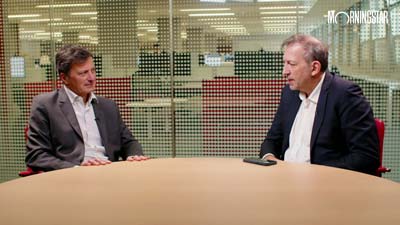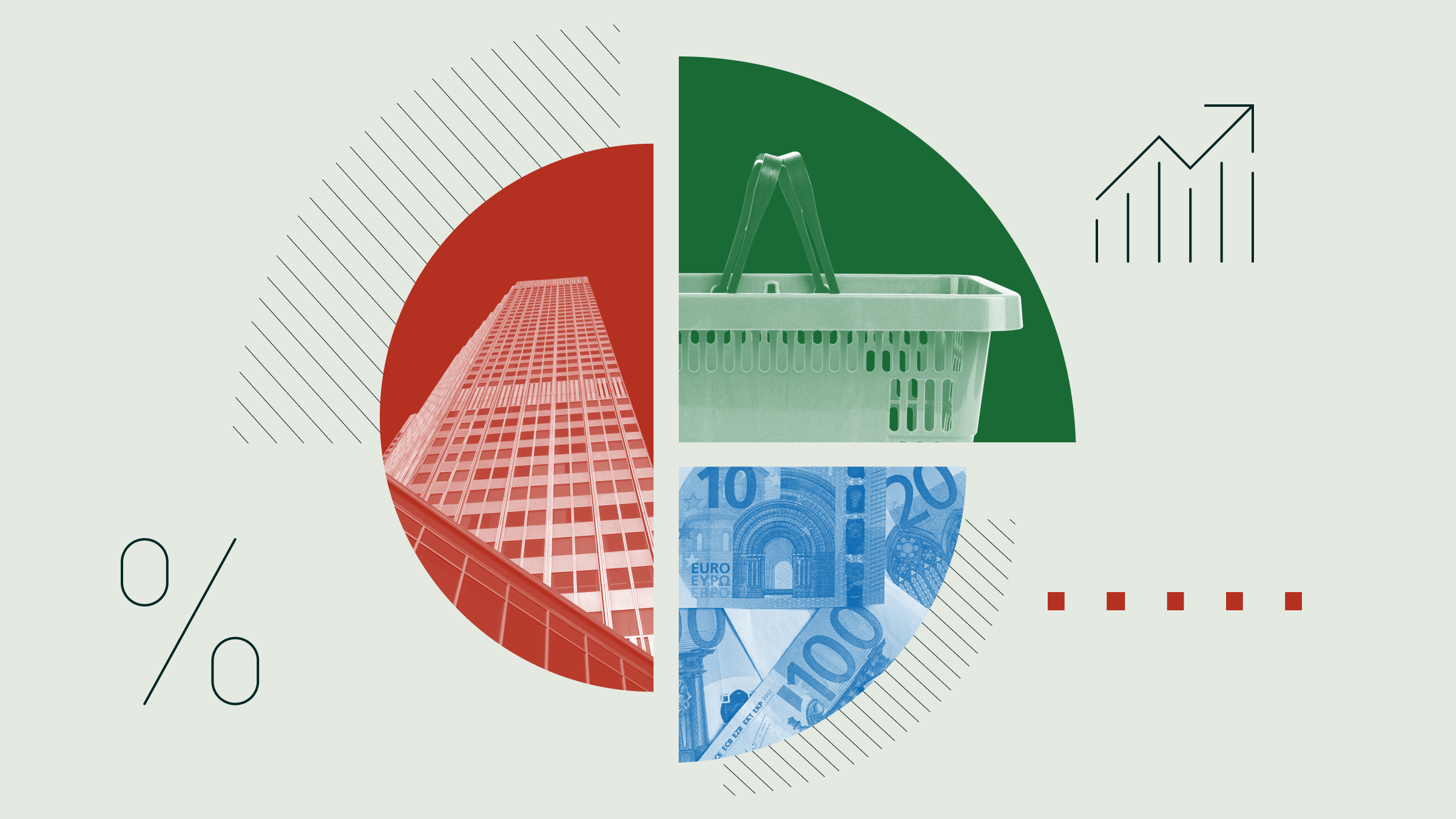TRANSCRIPT
Christine Benz: Hi, I'm Christine Benz from Morningstar.com. A portfolio of index funds or exchange-traded funds might be easier to set up and maintain than a portfolio of actively managed funds, but it's not foolproof. Joining me to share four common mistakes that investors might make with index products is Michael Rawson; he's an analyst with Morningstar.
Mike, thank you so much for being here.
Mike Rawson: Thanks for having me, Christine.
Benz: So, certainly, there are a lot of advantages to an all-index portfolio: It's certainly easier to oversee the moving parts, and it's easier to rebalance and do portfolio maintenance. But people can make mistakes with index product. So, you've compiled some of the common ones that investors make. And let's start with the first one: It's that investors have heard so much about index funds' and exchange-traded funds' low-cost advantage; they might tend to believe that all index-based products are low cost, but that's not true.
Rawson: No. It's not true. In fact, there are a lot of high-cost index funds. Index-fund providers--fund companies that are jumping on the bandwagon, seeing all the flows to index funds--might say, "Well, if we put the word 'index' on this fund, it's going to attract flows because people just associate indexing with maybe a fair return and low cost; but it's not always the case that index funds are low cost.
For example, there are about 53 S&P 500 funds out there, but the best ones charge 10 basis points or less; now that compares with an average actively managed fund or large-blend fund with an expense ratio of about 1.1%. So, those low-cost S&P 500 funds have about a one-percentage-point expense-ratio advantage, which makes it difficult for the average active manager to overcome that hurdle every year. But there are a handful of S&P 500 funds that charge more than 1%, and I personally wouldn't want to pay a high expense ratio for what could be a very low-cost vehicle. So, making the assumption that I'm automatically going to get a low-cost fund if I go with an index is something that people need to be wary of.
Benz: So, by overpaying, you're really doing away with that key advantage that the index products often--but not always--bring to the table.
Rawson: Absolutely.
Benz: Say I'm in a 401(k) plan or some sort of constrained environment where, on my menu, is an index product that happens to charge a lot more than, say, 10 basis points. What do I do?
Rawson: Well, sometimes your choices are constrained, such as within a 401(k) plan or through an insurance product. And sometimes maybe that moderately priced index fund is still the best option, if the other options in the plan are also high-cost actively managed funds. But to me, if you have a high-cost index fund and you're comparing that with relatively moderately priced active funds, I think you might want to consider the active funds more carefully because that advantage of indexing is going to go away once you have the high expense ratio.
Benz: Another thing that investors may have heard about is that ETFs--exchange-traded funds--and index funds can be more tax-efficient, so they might naturally want to put them inside of their taxable accounts. But you say they're not always tax-efficient, so you really need to be careful about what type of product you're putting inside of your taxable account.
Rawson: Here, I would look at the provider. As you say, not all index funds are necessarily tax-efficient. I think some of the providers who've made it a point of their business to be in the indexing business--it's a part of their strategy--they tend to be the most careful about keeping their index funds investments tax-efficient. But index funds and exchange-traded funds are subject to the same tax treatment as actively managed funds.
So, here, you need to be aware that index funds can have capital gains distributions. Typically, they don't and they are able to manage that because index funds tend to be low turnover. And if the performance is stable--maybe near the middle of the pack, as we would expect for a good index fund--you tend not to have these strong swings in performance, which can have a really strong impact on flows.
So, if the fund has a lot of outflows, it has to sell securities--even an index fund--and that will potentially trigger a capital gains distribution and a loss of tax efficiency. For example, there is an index fund by the name of Schwab 1000 (SNXFX) that now has had outflows every month for the past five years. That's forced the fund to sell securities at gains, and consequently the fund has been less tax-efficient than some other funds.
Now, the same thing has happened to some exchange-traded funds. ETFs have an additional tax-management tool with the ability to do redemptions in-kind, which allows them to be a little bit more tax-efficient than an indexed mutual fund, typically, on average. However, indexed exchange-traded funds do have taxed capital gains as well.
For example, there is a fund by the name of SPDR S&P Dividend ETF (SDY). That fund has had very high turnover, again, because it's a dividend strategy, so it's following a little bit of a strategy. And that high turnover has caused it to sell securities at the portfolio level, and that has led it to be a little bit less tax-efficient. And again, you see this with some of the providers who are a little bit less careful and with some of the more strategic-beta type of index funds where there is just more turnover in the strategy.
Benz: How about bond products? Is there any particular advantage to being in, say, a bond index fund versus an actively managed bond fund from the standpoint of taxes and tax efficiency?
Rawson: Not as much as you see with equities. In fact, bond funds--actively managed or passively managed--tend to both be a little bit less tax-efficient. Now, you don't have as much capital gains in terms of price appreciation, but you have a lot of interest income, and there's not much that an index fund or an ETF can do to avoid that interest or dividend income coming into the fund, so they have to pay taxes on it as well.
In addition, a lot of exchange-traded funds can't do the in-kind creations/redemptions because the bond market tends to be a little bit less efficient than the stock market, so they often have to buy and sell bonds outright, instead of using the creation/redemption mechanism, which leads to a higher level of turnover.
Benz: So, if you have a bond fund or if you want to hold a bond fund, you should either house it inside of an IRA or maybe if you want to put it in a taxable account, make sure you're looking at munis.
Rawson: Correct.
Benz: Another misconception surrounding exchange-traded funds and index funds, in your view, is that investors might think that they need to overdiversify. There are lots of little products; there are lots of products set to capitalize on one small style-box square or a sector or a region. You say that it can be a mistake to put together too many small pieces; investors are better off just thinking big picture.
Rawson: That's correct. I think there's something on the order of 1,600 exchange-traded funds. There is an index for every type of strategy out there. There is an index for every category. Certainly, with the Morningstar Style Box for the equity landscape, there is an index for each one of the nine corners of the Morningstar Style Box; but you don't really need to have an index fund in each of those corners. In fact, you are better off, I think, in a total-market fund. For example, in the U.S. equity market, I would go with a total stock market fund, which, in turn, owns large, mid-, and small caps--and even micro-caps--all in one fund.
Now, the benefit there is that typically you can get the total stock market fund at a lower cost than what you would get as the sum of the parts. For example, I think for Vanguard Small Cap Index (VSMAX), their Admiral shares is about 9 basis point, which is really low cost; but you can get the Vanguard Total Stock Market Index (VTSAX) at 5 basis points, and it includes all those small caps. So, you don't need to have the separate funds; you can get them at a lower cost within one fund. The additional benefit there is that the portfolio manager of the total-market fund isn't forced to buy and sell securities as they migrate in and out of one segment to another. So, you have a lot less turnover, [which means the fund is] less likely to have capital gains distributions, and [having fewer trading costs is] going to help you in the long run.
Now, if you are more of an active investor and you say you want to overweight a certain segment, you could use a size segment fund or a niche vehicle and target a certain segment, but I still think the bulk of your exposure could be had more efficiently through a total-market type of index fund.
Benz: You mentioned active strategies, so the last mistake that we want to talk about is regarding investors who might be inclined to get really active and hands-on with the exchange-traded fund or index fund. These are obviously very easy products to trade--ETFs in particular--but you say that it's not necessarily going to enhance your returns to be really hands-on and very tactical in terms of your asset-allocation adjustments.
Rawson: Absolutely. Some people call this "active using passive," where you're using passive funds to implement an active strategy. Well, if you truly believe in the benefits of passive investing and then you go and try to market-time or try to trade in and out of certain index funds, then you potentially could be losing some of those long-term benefits of passiveness that we've talked about. And certainly, ETFs are very easy to trade, so they kind of give you that temptation; [some investors might think now that they] have all these different types of index funds available, why don't they go and trade them?
Certainly, we see a lot of financial advisors who are going off on their own, saying, "Well, I'm going to give you index funds, and you're going to get a great deal if you house your assets with me because I'm going to put you in index funds." But if that financial advisor is trading those index funds actively or using a tactical strategy or maybe even layering on some extra fees, the investor needs to be aware of that. And I might not have the same performance as this index did over the long period of time if I'm going to now tactically trade it and try to market-time or if I add additional fees onto what the lowest-cost indexes would have cost.
Benz: Mike, always great to hear your insights. Thank you so much for being here to share these four mistakes that index-fund investors could be making.
Rawson: Thanks for having me, Christine.
Benz: Thanks for watching, I'm Christine Benz for Morningstar.com.





















